Small Businesses Are a Big Part of Detroit’s Recovery
In Detroit’s recovery, access to capital still an issue for African-American business owners
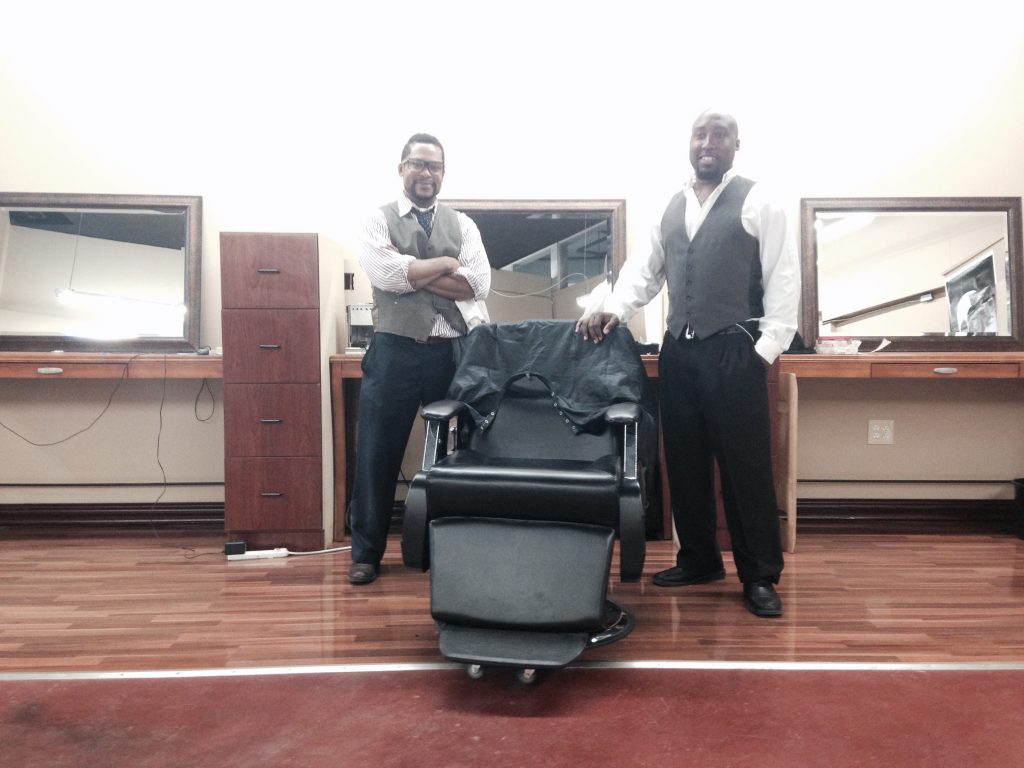
Part of Detroit’s recovery from Chapter Nine depends on growing its revenues and available jobs, and small businesses are part of that. Most of Detroit’s businesses are Black-owned, 60 percent according to the 2007 US Census. But as the city’s downtown business sector is flourishing, some are worried that African-American business owners might be left out, especially if they are located in outlying neighborhoods. Others see this moment as an opportunity that Black Detroiters can cash in on.
Opportunity Black” is the name of the first event put on by the Young Entrepreneur Society of the Detroit Black Chamber of Commerce. Hundreds of established and aspiring business owners and young professionals mingle in a conference space at the Federal Reserve Bank in Detroit.
I ask members of the crowd about opportunities and obstacles to being a Black business owner in the city right now. Tatiana Grant’s response, “The biggest opportunities I would say are in regards to capital,” is the same response given by others as a challenge.
“Have you had a particular obstacle you’ve encountered, maybe as a Black female entrepreneur?” I ask Ida Byrd-Hill.
“Money,” she answers with a laugh.
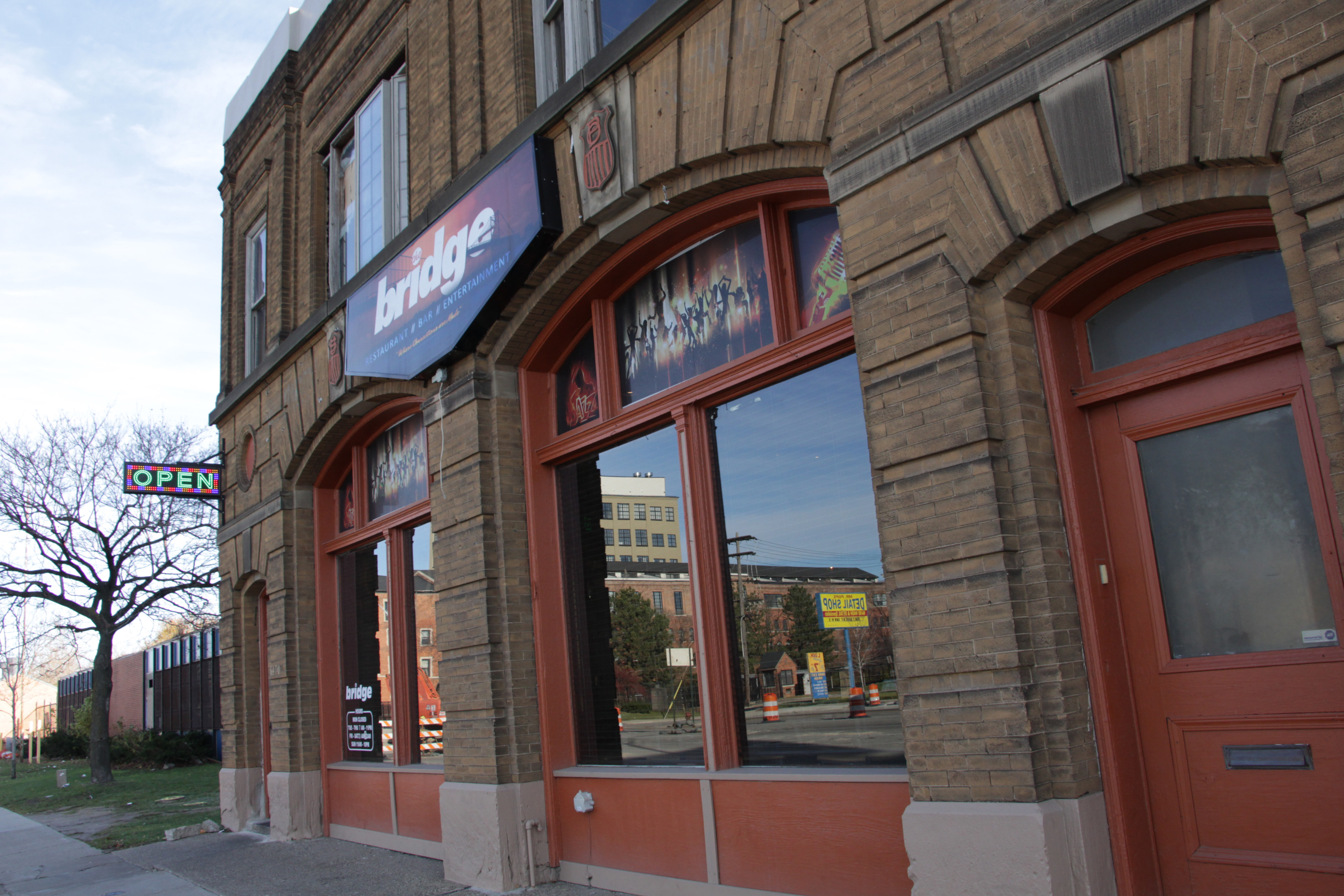
Timashion Jones admits, “You know we never approached a bank for a loan.”
Allen Williams feels, “Capital’s always gonna be a factor for anybody starting a business.”
Money does tend to be an issue for most entrepreneurs, but studies show it can indeed be a bigger challenge for Black entrepreneurs.
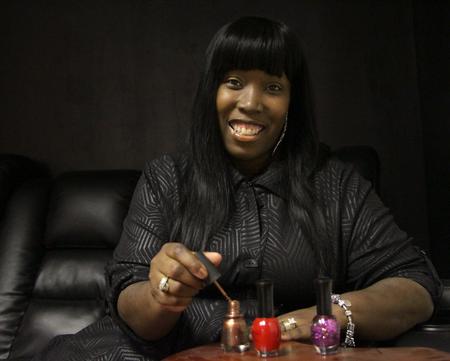
First of all, racial prejudice is still a factor today. Black business owners are about twice as likely to be turned down for a loan as White business owners with similar financial qualifications. That’s according to a Georgetown University study from 2002.
But beyond this bias, Black business owners in Detroit have a harder time qualifying for loans.
When you apply for a loan, your credit score is checked. The Federal Reserve System says, on average, African Americans have lower credit scores than Whites.
Then there’s collateral. Lenders want to see what you’re able to offer up in case you’re not able to repay a loan. A house is a good source of collateral. But Detroit’s homeownership rate is two thirds of the rest of Michigan according to the US Census. That leaves a significant number of Detroit residents who can’t leverage a home to help them qualify for a business loan.
Of course there are African-Americans in Detroiter who can walk into a bank and walk out with a business loan. But for many it’s difficult, if not impossible, to meet the criteria.
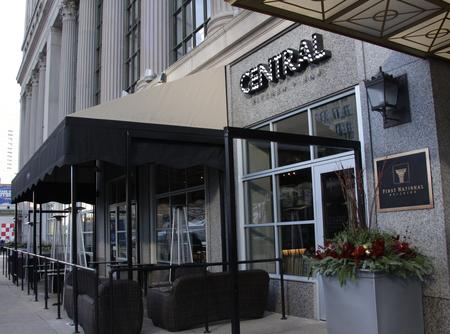
Kimberly Faison is the director of a community organization called ProsperUS Detroit. She says it makes sense for banks to be conservative.
“Quite honestly they have investors, and those investors are very risk averse and that’s appropriate for a bank,” says Faison. “But in a place like Detroit where you have so many people who aren’t actively participating in these financial systems, it’s really important to be mission driven in this work — which is not cheap!”
ProsperUS Detroit is one of a handful of programs that have popped up in the city in the last decade to help set up entrepreneurs – mostly minorities – for success. Faison’s organization helps clients write business plans that are, as she says, “rooted in reality.” A loan officer helps them prepare documents that are reviewed by the organization’s lending committee, a panel of business people and community members. Because the money comes from foundations, the committee isn’t as selective as traditional lenders. Faison says this support and trust is needed in a city where so many people are deemed “unbankable.”
“We really do have to approach this particular issue in a different way because Detroit has too much talent to continue to lose it to other places for lack of access,” she says.
Dante Williams, a 37 year old father of five and graduate of the ProsperUS program, was almost lost talent.
“We were trying to move to Farmington,” Williams admits, “and my wife said, ‘Hey, if you are going to open a business, why not look in Detroit?’ And here we are.”
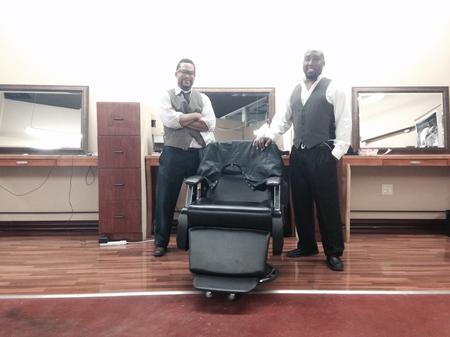
This is the soft opening for his barbershop, “Cutz Lounge,” in the Grandmont-Rosedale neighborhood of Detroit. He’s wearing a pinstriped shirt with a vest and vintage style glasses.
“This is the barber shop space, we’re gonna have roughly nine locations set up here,” Williams says on a tour. He gestures toward the barber chairs set up in front of framed mirrors over a shiny hardwood floor. The shop includes a lounge area with leather sofas and a toy-filled play area in the back. This space is a dream come true for Williams who calls himself a “starving entrepreneur.” He’s been cutting hair since he was 11, most recently at a shop in Inkster.
“The one thing that lacked in my whole professional entrepreneur career is the fact that I could not get past my financials,” he says.
ProsperUS set him up with an accountant and he was finally able to receive a loan. That money, coupled with financial help from friends and family, has allowed Williams to renovate this building.
“That whole section there was a wall. And that was the first wall that I kicked in. Being able to see this and see past that… as you say another barrier, right?”
Another barrier that’s no longer in his way. Williams is just leasing the building right now, but he hopes to make enough revenue from cutting hair to one-day purchase the building.
New businesses like Williams’ mean more jobs, which lead to more taxes being paid. And that makes Detroit better able to meet the revenue projections in its recovery plan. In other words, supporting development like this makes sense for the City.
“Have you seen the new program we did? Who’s heard of Motor City Match?” Mayor Mike Duggan asks a citizens’ group at a Midtown church. He’s talking about a new program that offers up to $500,000 in grants to Detroit businesses and building owners every quarter. Of the first ten winners, all were from Detroit and a majority were men and women of color.
“We got a lot of Detroiters with great entrepreneurial skills who could never imagine that they could ever get a loan, they could ever get started,” says Mayor Duggan. “We’re not gonna be a great city until our folks growing up here feel like they could own their own businesses.”
Back at the Opportunity Black event, Ken Harris, the president of the Michigan Black Chamber of Commerce, wants to document that that time is now. He has a task for the audience at the Young Entrepreneur Society event.
“Pull out your cell, hold it in the air,” he commands the audience members at the Young Entrepreneur Society event. “I want everybody to take a picture of this crowd and each other and I want you to tweet it right now… because this is how we get down… because you know what? They say y’all don’t exist! They say successful young Black businesses don’t exist! So stand up, tweet, MySpace, hashtag, put it all together, alright?”
And at Ken Harris’s urging, every single person in the room is on their feet. Just think if every one of these entrepreneurs got a loan, was able to grow their business, and hire employees. That would mean more tax money for Detroit. Then the City would likely find itself in an even better financial standing.

